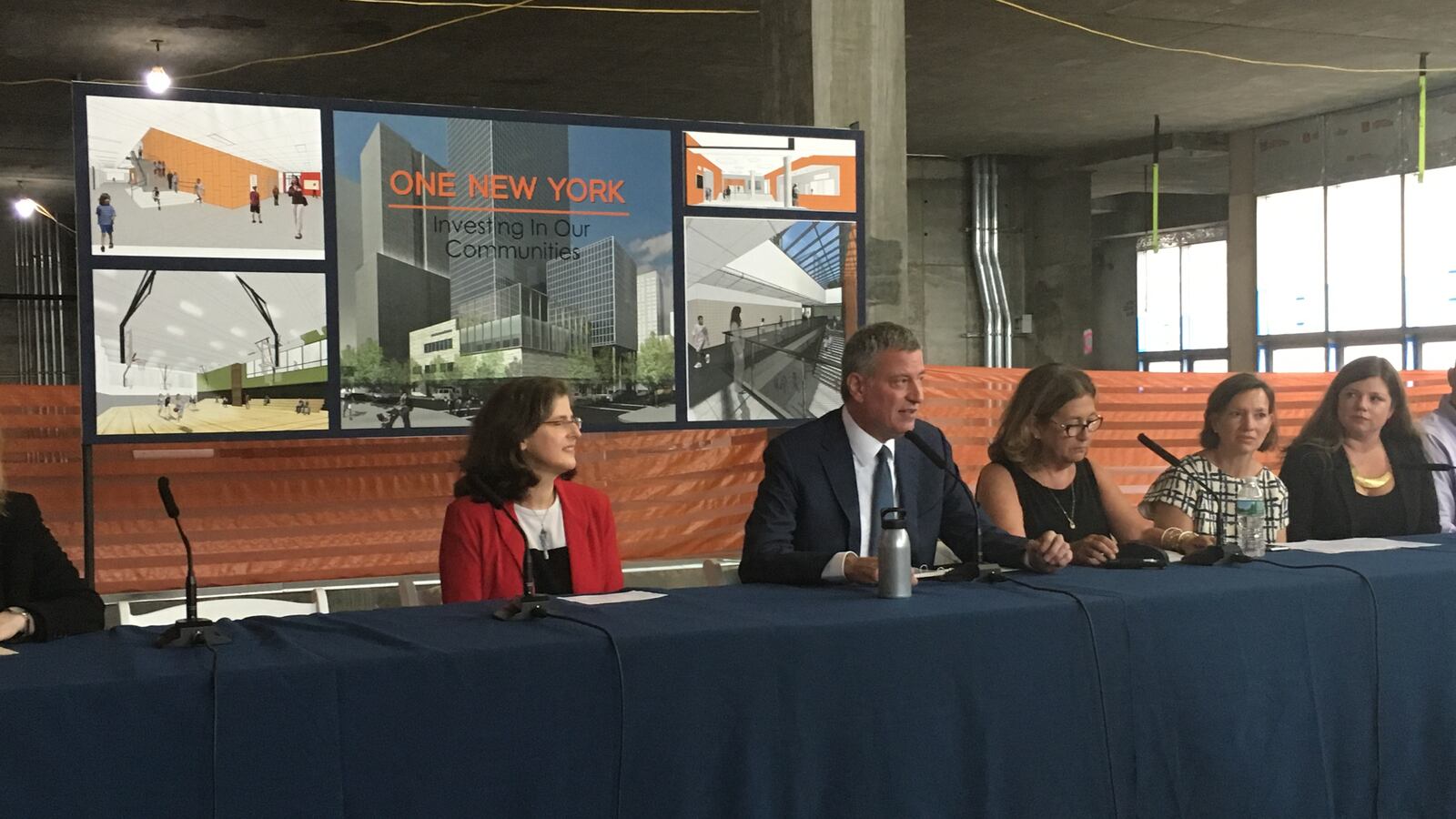On Wednesday afternoon, Mayor Bill de Blasio stepped into a highly segregated school district and fielded questions about how he might help integrate the city’s schools. But he largely sidestepped the details.
“There’s some really great new models that look at economic diversity and other factors that allow us to do the work of diversifying schools,” de Blasio said. “So to folks who say we want to see more, I understand where they are coming from and my simple answer is: you’re going to see more.”
Those comments came as part of a press conference at a construction site where the new Upper West Side building that will house P.S. 191 will open next fall, a full year ahead of schedule. But P.S. 191 is also part of a larger rezoning debate unfolding in the Upper West Side’s District 3 that went mostly unaddressed.
P.S. 191’s population is 85 percent black and Hispanic, predominantly low income, and was recently dropped from the state’s list of “persistently dangerous” schools. Meanwhile, P.S. 199 stands nine blocks away, a school that is roughly two-thirds white, 8 percent poor, and posts test scores twice the city average.
Last month, the city presented plans that could substantially alter the share of low-income students at P.S. 191, 199, and 452 as part of a broader effort to ease overcrowding, and for the first time, cited desegregation as an explicit goal of the proposals — despite parent concerns.
But on Wednesday, de Blasio did not endorse a specific plan. When a reporter asked him if he considered the segregation in District 3 “unacceptable,” he rejected the premise of the question, arguing that school segregation has longstanding historical roots.
“We’re not dealing with a world where we got to set the ground rules decades in advance. We’re dealing with a world that has been as it has been for a long, long time,” de Blasio said. “We have to bring the people of New York City a bigger vision of how we’re going to do this now that we have some tools that are working – and we don’t have that all worked out yet. But my argument is I think we’re going to be able to make real progress here.”
The mayor was also asked about the fact that charter schools had outpaced district schools on recent statewide tests. He attributed much of their success to test prep. “If that’s where they put a lot of their time and energy, of course it could yield better test scores. But we don’t think that’s good educational policy,” he said. “So we have a different approach, but we think that approach is yielding better results in terms of actually teaching kids.”
That comment comes after a week in which de Blasio touted the city’s increases on the tests as indicators of student progress, and prompted a flurry of outrage from pro-charter groups.
“He’s practically kicking kids who did well in the shins to try and please the teachers union,” wrote Jeremiah Kittredge, CEO of Families for Excellent Schools in an email later in the day, announcing a protest the following morning. “What a disgrace. Mayor de Blasio should apologize to NYC’s charter school students immediately and congratulate them on their success.”


